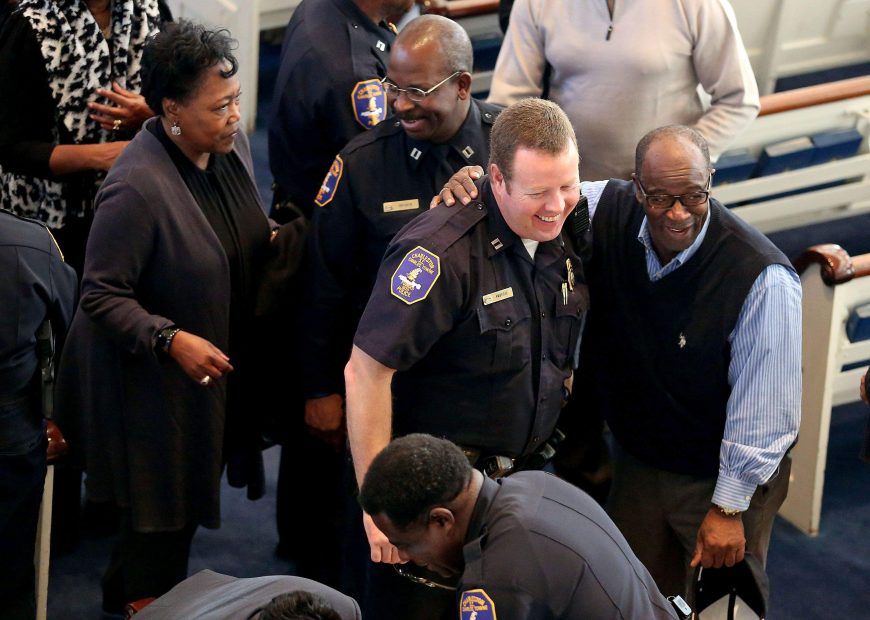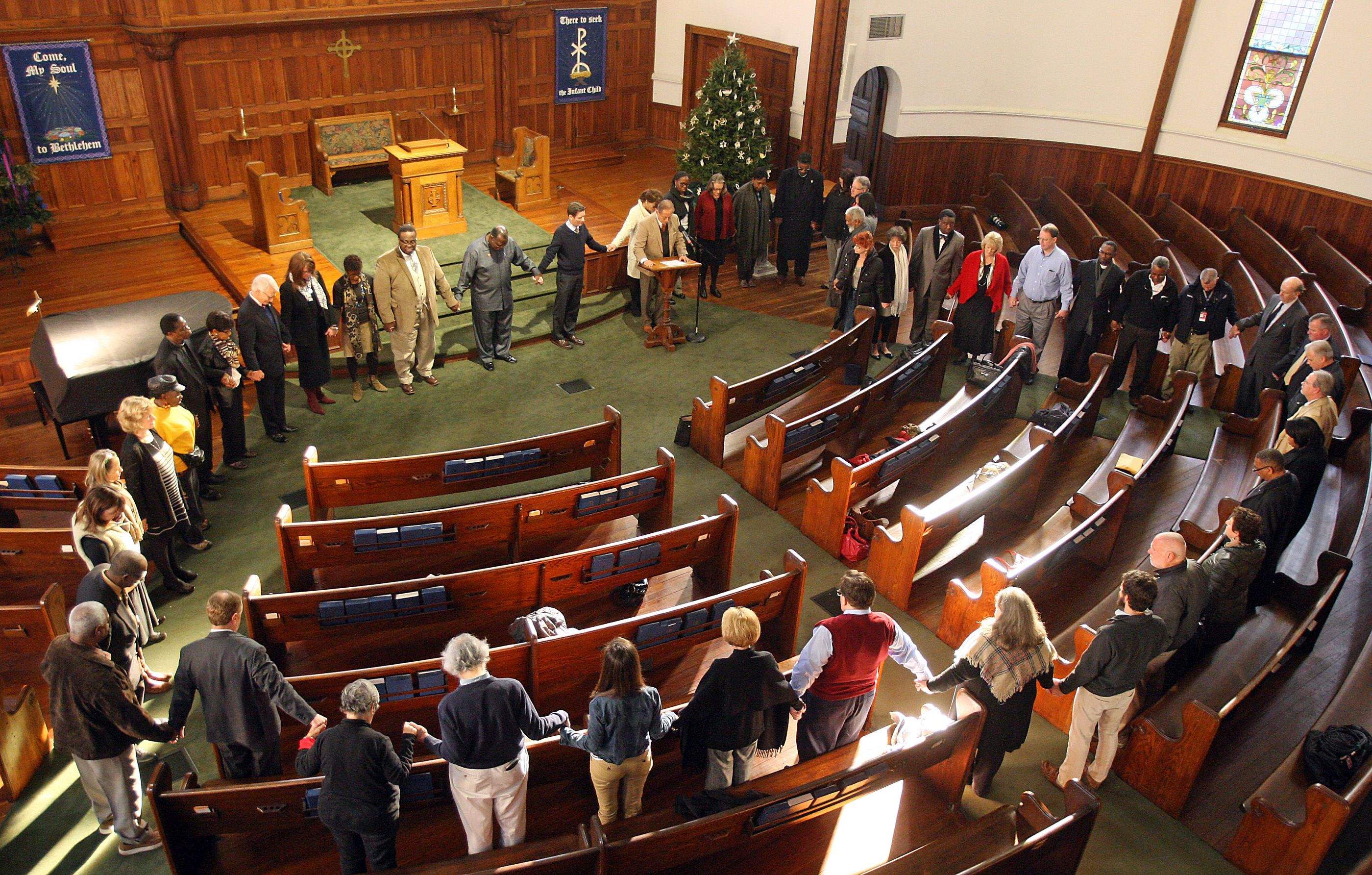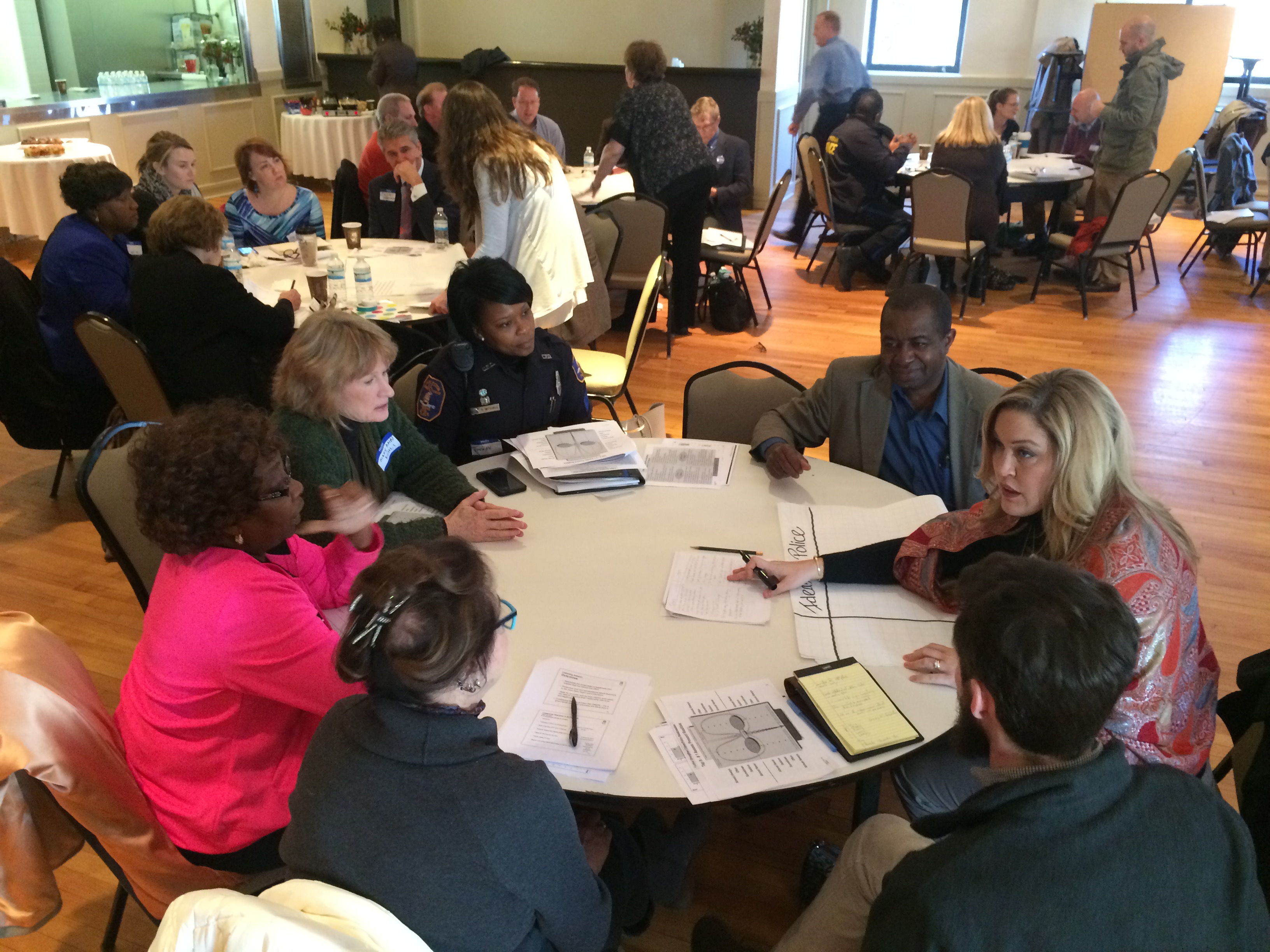Greg Mullen, Chief of Police, Charleston, South Carolina, Police Department; Robert “Jake” Jacobs, Consultant, Real Time Strategic Change; Margaret Seidler, Consultant and Master Trainer, Seidler & Associates LLC; and Greg Whitaker, Captain (Ret.), Charleston, South Carolina, Police Department
THIS ARTICLE FIRST APPEARED IN THE INTERNATIONAL ASSOCIATION OF CHIEFS OF POLICE MAGAZINE
On June 17, 2015, at approximately 8:06 p.m., a young, white male who aimed to start a race war entered the historic black church in Charleston, South Carolina, and joined with church members in a Bible study. For the next hour, he would discuss Bible verses and interact with the 12 parishioners who were also present.
An hour later, at approximately 9:06 p.m., he retrieved a Glock .45 caliber pistol from a fanny pack and systematically began killing those who were in attendance. At the end of his rampage, nine individuals had been killed, leaving only five survivors. Of the three surviving parishioners, one had been purposefully left alive by the shooter to tell the story; two others, a mother and granddaughter, lay in the carnage pretending to be dead as they watched their family members and fellow church members die. The other two survivors, the pastor’s wife and young daughter, hid in a back office unknown to the shooter.1



